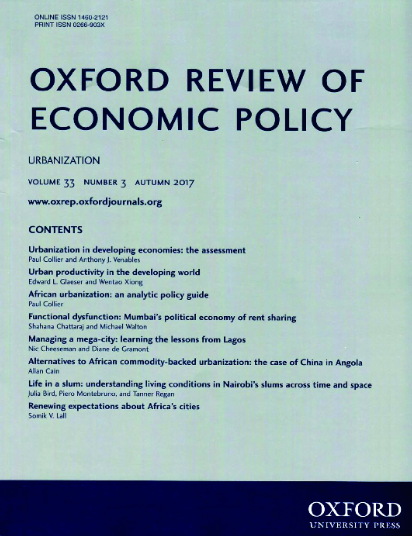关于碳定价的五大误区
IF 1.8
2区 经济学
Q2 ECONOMICS
引用次数: 0
摘要
虽然碳定价,特别是碳税,在经济学家中很受欢迎,但在政策制定者和公众中却存在相当大的误解。在本文中,我考虑并驳斥了关于碳税的五个迷思:(1)碳价将损害经济增长;(ii)碳定价将扼杀就业机会;(iii)碳税和限额与交易计划具有相同的经济影响;(iv)我们无法通过征收碳税实现碳减排目标;(五)碳定价是递减的。然后讨论对政策制定的影响。本文章由计算机程序翻译,如有差异,请以英文原文为准。
Five myths about carbon pricing
While carbon pricing, in general, and carbon taxes, in particular, are popular with economists, they are subject to considerable misunderstanding among policy-makers and the public. In this paper I consider and refute five myths about carnbon taxes: (i) that a carbon price will hurt economic growth; (ii) that carbon pricing will kill jobs; (iii) that a carbon tax and cap-and-trade programme have the same economic impacts; (iv) that we can’t achieve carbon reduction targets with a carbon tax; and (v) that carbon pricing is regressive. I then discuss implications for policy-making.
求助全文
通过发布文献求助,成功后即可免费获取论文全文。
去求助
来源期刊

Oxford Review of Economic Policy
ECONOMICS-
CiteScore
12.50
自引率
1.50%
发文量
41
期刊介绍:
The Oxford Review of Economic Policy is a refereed journal which is published quarterly. Each issue concentrates on a current theme in economic policy, with a balance between macro- and microeconomics, and comprises an assessment and a number of articles. It gives a valuable appraisal of economic policies worldwide. While the analysis is challenging and at the forefront of current thinking, articles are presented in non-technical language to make them readily accessible to all readers. The Oxford Review is aimed at a wide audience including government, business and policy-makers, as well as academics and students. It is required reading for those who need to know where research is leading.
 求助内容:
求助内容: 应助结果提醒方式:
应助结果提醒方式:


